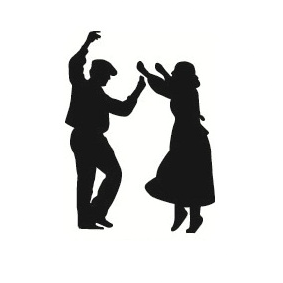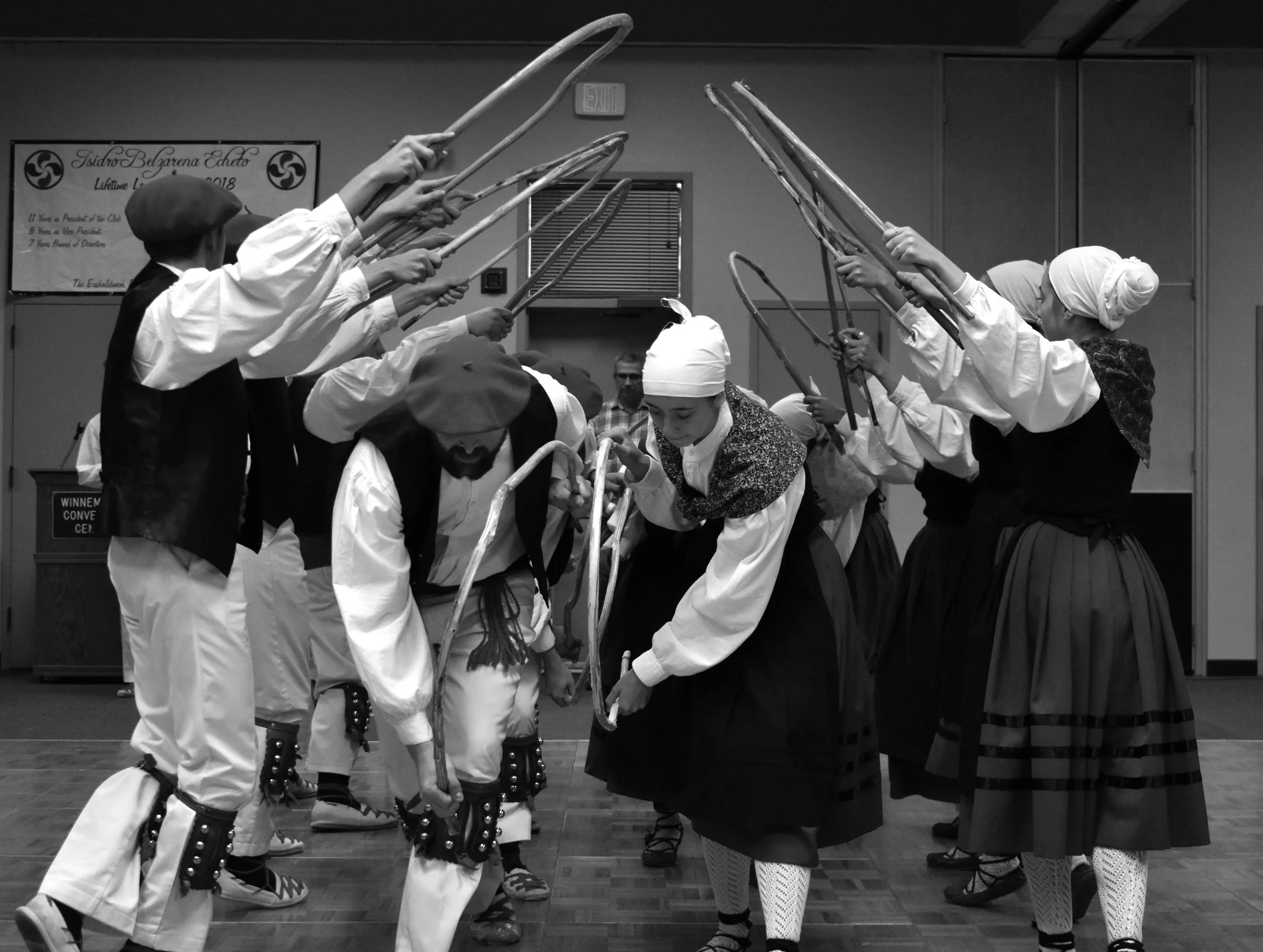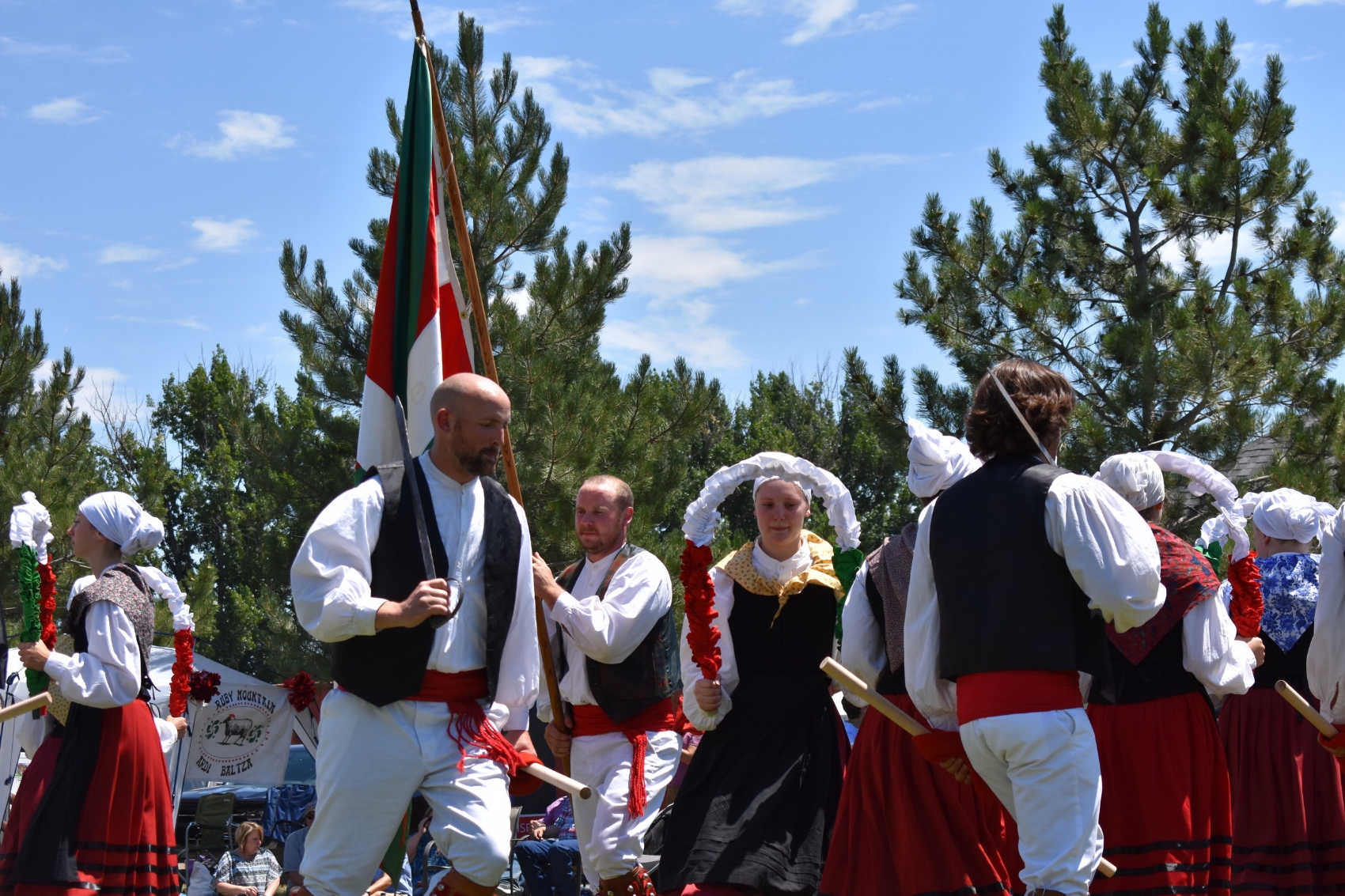Culture is a difficult idea to grasp. For every group, it means something different. Some have prominent culture that they work hard to consciously propagate. Other groups allow their culture to develop in a more instinctive manner. But culture is what makes groups of people unique. It doesn’t matter if it’s a high school team, a regional area, a company, or a dance group. What a group does daily is what ends up defining them. Their values and beliefs are defined and reinforced by the paths they choose to follow. The Oinkari Basque Dancers are no different in that aspect. However, we have decades, even centuries, of culture to guide us, and we have direct connections to the source of our culture to reference. This is my part of the ever-growing culture that we live.
In August of 2015, I was barely a month out of the Air Force, having finished a six-year stint that started right after high school. I was a week from getting started in my first semester at Boise State University, and I was still trying to find my place. Knowing I would eventually have to take a language elective, I decided to get it out of the way and take a class in which I was genuinely interested: Basque 101. Looking back, this decision would be like tipping the first domino, starting a chain of events that would change my life.
The class was small, and us students quickly became closer than in any other class I’ve taken to date. Ellie, one of my classmates, told us that she was in the Oinkari Basque Dance group. She tried to convince me to come to newcomers practice. John, an older gentleman who had been in the group in its 3rd year, also encouraged me to try it, but I was hesitant. You see, unless we’re talking about country swing, I’ve never been what anyone would call a good dancer. My body just doesn’t move that well to the music. Hell, it still doesn’t. But I learned years ago, saying yes to something new, even when your nerves are begging you to say no, often only makes you happier.
So I went to new kids practice.
And true to form, I was terrible. One-two-threes were awkward and choppy. I was stiff. Nothing I did could be called smooth or graceful. When I tried to put steps together, I quickly fell out of rhythm and got out of step. But I kept going to practice. Even when I felt like the worst dancer in the entire group, I kept coming. Leading up to the Sheepherders Ball that year, I could probably dance 3 dances competently. But at that point, I was hooked. I could see the constant improvement. I could sense that if I just put in the time, I’d someday be a good Basque dancer.
But more importantly, I found people that cared about me and wanted me there. I found a community that supported me when I struggled, and only asked that I try, and keep trying. The rest would come. I poured sweat continuously, every Sunday, for 4 hours. My feet got a little surer. My movements became smoother. I learned dances that the group has been performing for decades, and Basque people have been performing for centuries.
Fast-forward to the Spring of 2018. I didn’t know what I was going to do for summer, but I knew I wouldn’t be fighting fire for a 3rd season, even though I wanted to. I knew I needed engineering experience if I want to get hired when I graduate in 2 years. I also knew I wanted to stay in Boise, because I want to dance with the Oinkaris during festivals. Every Fall, I hear stories about how great the summer has been. So, I decided to stay here for the summer. I’m still not what I would call a good dancer, but I’m still getting better and contributing to the group. And my bond with them has only gotten stronger.
Now, the Winnemucca trip was my first summer festival with the group. On the days leading up to it, I could feel a buzz building. Energy had been breathed into the group, and we got more and more excited every day. When I went to work on Friday, less than 12 hours before we would leave Boise, I couldn’t mentally concentrate on anything but the trip.
The weekend was a whirlwind of dancing sweating, eating, laughing, and more dancing. We were in the parade on Saturday morning, performed on Saturday evening, danced to live music well after midnight, went to mass on Sunday morning, and performed midday on Sunday. That was what we were here for, but that wasn’t what made this weekend special. It was the people. The people in our group, the people in other groups, the people that had traveled from all over to be there, and the people of Winnemucca.
On Saturday, after the parade, a small group of us were getting lunch in costume before we had to perform. An older gentleman came up to us and thanked us profusely for being there. He told us that we had made his day, and how important it was that the Basque culture be passed down and shared with others, so that it will survive and grow stronger.
A member of our group grew up in Winnemucca, and that evening, her parents welcomed us, as well as the group from Salt Lake City, into their home. They prepared burgers, hotdogs, and sides, and when we pulled into their quiet neighborhood in a huge charter bus, they welcomed us with literal open arms. They played host, BS’ed with us, and were the most wonderful people we could spend our evening with. They made Winnemucca home. Herc and Itxaso, if you’re reading this, I hope you know how much we appreciate you.
Less than a month later, we were in the town where I was born. My parents had driven over 10 hours from Montana. They, and most of my extended family, would get to watch me dance for the first time.
Obviously, I was excited, but I was also nervous. Would they share my enthusiasm for our dancing? Over the last three years, this has grown into a large part of who I am. Before I came to Boise, I was proud of being Basque, but I didn’t do anything that was specifically Basque. I didn’t know my family’s history. I didn’t know any of the language. I couldn’t have told you how many provinces there were, or even which one my great-grandpa and great-grandma were from. All I knew was that their last name was Mendibe, which became Mendive when they came over, and that they started the ranch where my parents lived when I was born. I knew our Basque-American history, but no more than that.
Dancing and Euskara (the Basque language) were there at the beginning, when I learned about all of this, and are therefore connected to my discovery of my personal culture. The fact that I was about to share something that I considered deeply personal, which still made me uncomfortable, with those whom I considered most important to me, made me anxious. I wonder if they understood its importance. I don’t know if they did, but I do know that the weekend was incredible. Once again, we danced, I sweat, and fun was had by all. Our performance on Sunday afternoon was incredible, I got to spend time with my family, and they got to watch me take part in a culture that has been around for centuries, but continues to grow.
Before I leave you, I have one last thought. Culture survives when it is practiced. For the Basque people, it’s often strongest in the language, dance, food, and drink. In Boise, and across the American West, we may be genetically Basque, but it’s a daily choice. We choose to go to the museum and learn about the culture. We choose to go to the Basque Market, or Bar Gernika, or the Basque Center for monthly dinners. We choose to dance (even if we’re 24 when we start). We go to the Basque Country and learn the language, because the Basque word for Basque people literally means those that speak Basque. We choose to share our culture with each other, but also with others, because we want everyone to know about Euskal Herria. And when we make these choices they become part of our identity. I’m Kirk Mendive, and I’m Basque.
Kirk Mendive
Oinkari Basque Dancer




